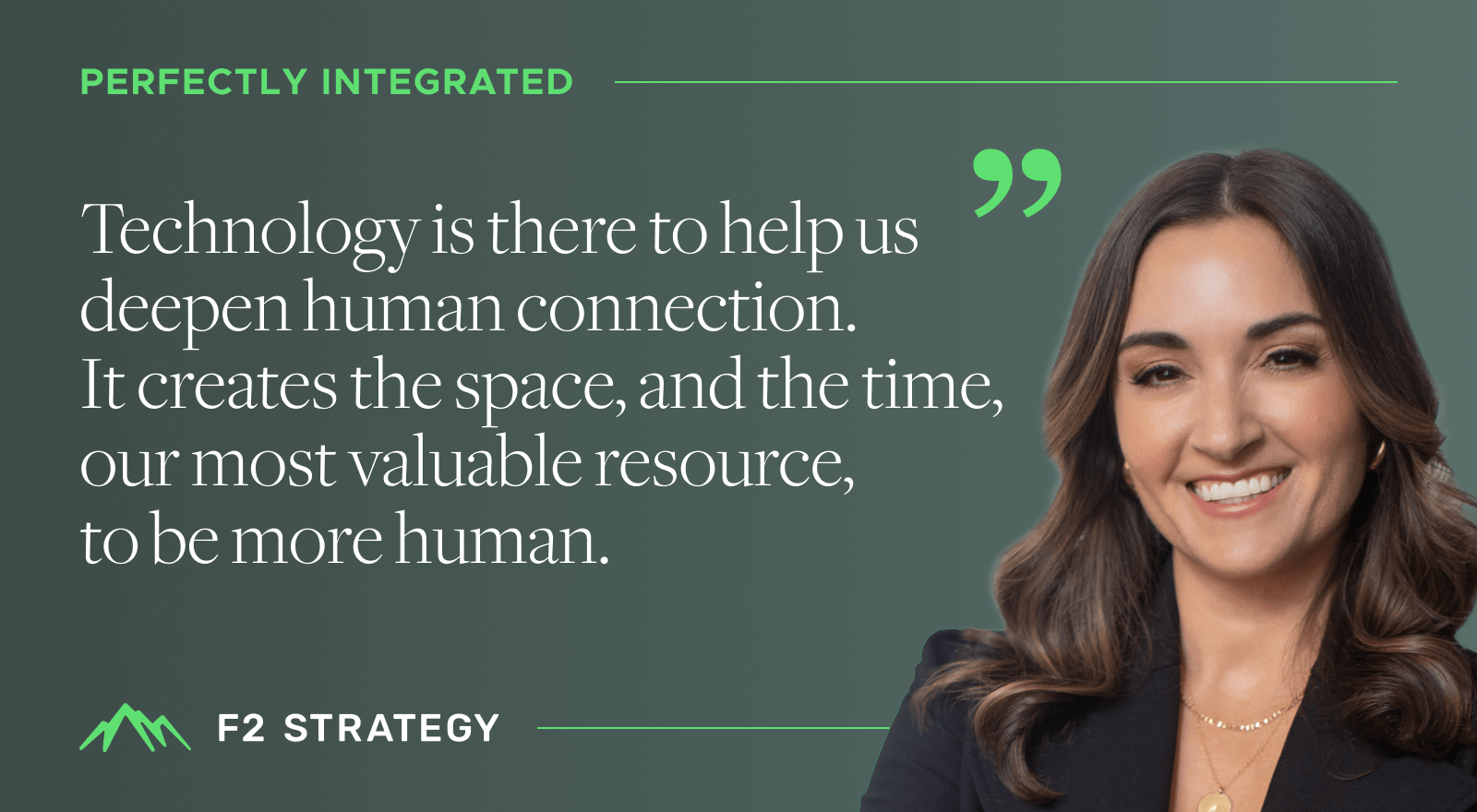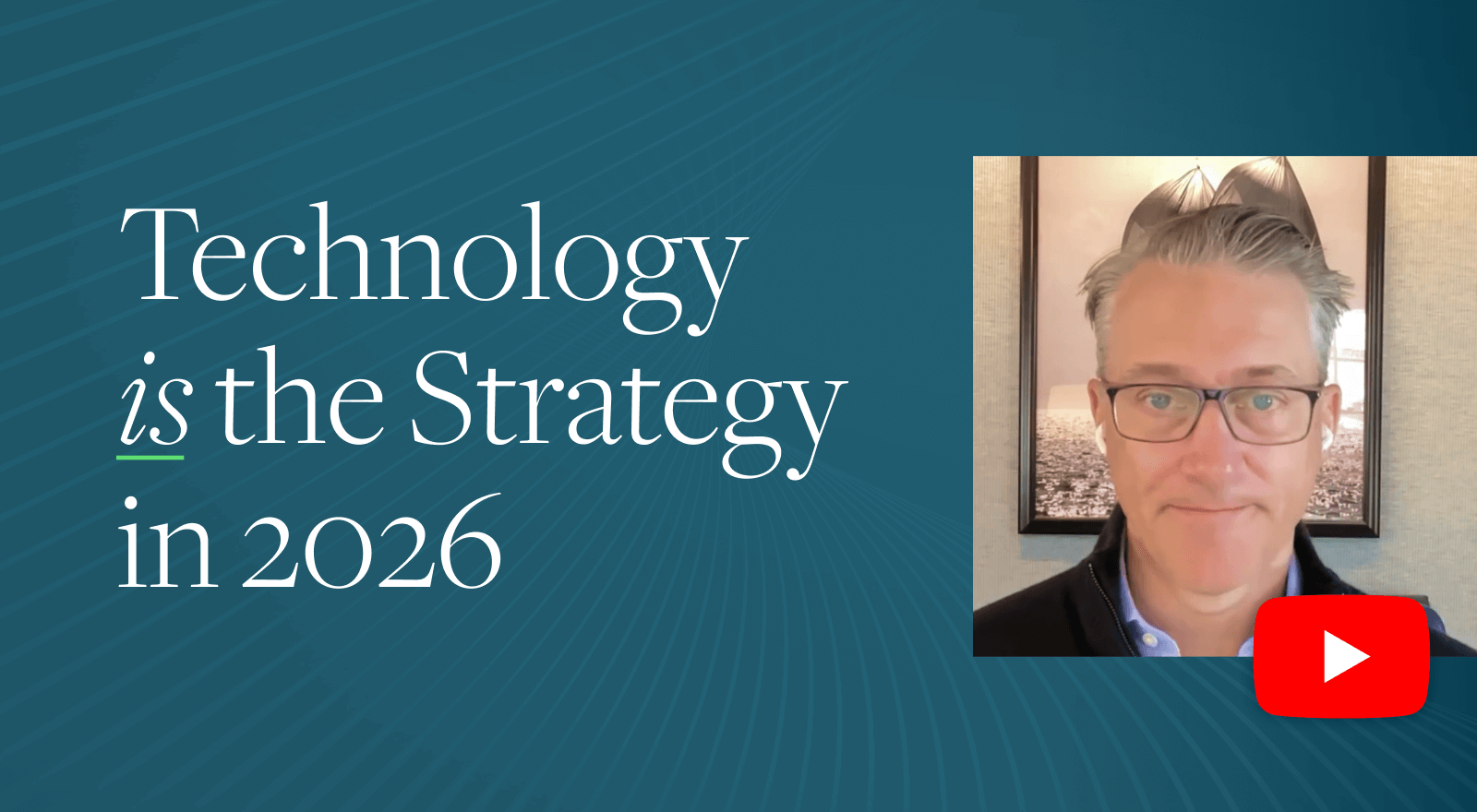According to the J.D. Power Full-Service Advisor Satisfaction survey, advisor satisfaction is up over last year, but that does not mean advisors can be complacent when it comes to understanding their clients’ needs. Flight risks are also up (affluent millennials are the most likely group to consider changing advisors in the next 12 months). To counter this threat, advisors need to differentiate themselves.
To establish true differentiation, wealth management firms must focus on creating personalized experiences through technology.
“Personalized communication means delivering the right message the right way at a given time,” explained Craig Martin, executive managing director and global head of wealth and lending intelligence at J.D. Power during a recent presentation to wealth management technology leaders.
Understanding what experiences they should build and making informed technology investment decisions requires engaging with clients on their relationship and communication preferences--something that is not happening widely in the industry.
Earlier this year, as part of their work with over 100 wealth management CTOs/COOs, F2 Strategy analyzed and benchmarked how wealth firms involve clients/investors in the innovation process based on the hypothesis that firms were missing critical client feedback in favor of what advisors ‘thought’ clients wanted. Here are four big trends from the recent study of wealth management firms’ client engagement strategies:
Trend 1
Firms are Designing Client Experience without Input from Clients
Sign up to get industry insights delivered directly to your inbox
Insights and Actionable Intel
- The overwhelming majority of firms think a compelling client experience is a critical component of their future business model, but most are not engaging with their clients to support its design
- Firms cite several reasons for not engaging their clients including “being at the mercy of custodians’ and large technology companies’ capabilities,” “being unable to deliver on their feedback,” “inviting compliance complaints” and their “need for better integration”
- Advisors are often the exclusive source of information; few firms report using client interviews and NPS surveys to solicit feedback
- Take Action: It is dangerous to build an experience by responding to the loudest voices, especially when those voices are advisors who do not represent a full picture of the firm’s client base. Gaps in experience design, content and engagement channels (mobile, desktop, and others) are likely when information about needs and consumption habits are not broadly collected from a full range of sources. Engage clients through surveys and interviews to ensure those touchpoints are spread appropriately across all client segments.
Trend 2
Wealth Management Firms are not Tracking Use of Digital Enhancements
Insights and Actionable Intel
- While J.D. Power found most investor clients are logging in to websites and mobile apps, individual wealth management firms report to F2 that they are not tracking the use of their digital tools
- By not tracking enhancements, firms allocate resources to something that they have no evidence of is paying off or not. There is no mechanism to know if the experiences are subpar and negatively impacting the brand.
- Firms also miss opportunities to engage, drive organic lead generation, understand what their clients care most about and identify trends and risk factors
- Tracking the use of enhancements can help advisors prepare for client conversations and answer pressing questions
- Take Action: Clearly define the desired outcome when implementing new digital experiences and understand what metrics you need to track and analyze to measure the progress toward that outcome. Identifying those data points prior to implementation will increase the success rates at determining the value of the new digital tool.
Trend 3
ROI on Client Experience is Hard to Define
Insights and Actionable Intel
- Many respondents report not knowing how to define ROI—is it growth of wallet? Cost-savings?
- Without gauging the level of success of current tools and combining it with other data points, firms do not have a reliable method to determine if they should invest more in digital enhancements or how to prioritize them
- JD Power pointed out that in 2024, 41% of advised clients’ experiences fall into the transactional category on its advice continuum, putting them at the greatest risk by technology-enabled solutions that can compete on price and efficiency
- Digital experience should be measured by its ability to provide better insights to clients and a way to engage clients with more quality contact touchpoints (not just a pretty place to look at a statement, but a way to drive website content to a client's phone as an alert that they can use and share with friends, and then come back and engage with you) because the number of quality contact touchpoints has a direct correlation NPS and by extension, referability
- Take Action: Drive decisions in a product-focused manner rather than reactive manner by establishing a process and product owner for assessing feedback, determining potential return, and finding the biggest opportunities for improving the platform
Trend 4
Advisors are Reluctant to Share too Much Information with Clients

Insights and Actionable Intel
- Advisors worry that sharing too many charts and graphs and complicated statements will create unnecessary anxiety among clients
- Hiding content does not help build client relationships and, additionally, J.D. Power reported that failing to promote and train clients on the value of digital harms clients’ perspective of their advisors
- Take Action: Open lines of communication are a key way advisors can combat potential client migration to other firms. By sharing content that resonates with clients at key points in their lives, advisors can build relationships based on more than numbers
F2 Strategy Survey Information: The data in this report is pulled from a survey conducted by F2 Strategy in February 2024. The survey includes responses from 38 leading RIA, Wealth Management and Broker/Dealer firms representing $6 trillion in assets.
JD Power Survey Information: The U.S. Full-Service Investor Satisfaction Study, now in its 22nd year, measures overall investor satisfaction with full-service investment firms in seven dimensions (in order of importance): trust; people; products and services; value for fees; ability to manage wealth how and when I want; problem resolution; and digital channels. The 2024 study is based on responses from 9,951 investors who work directly with a dedicated financial advisor or team of advisors. The study was fielded from January 2023 through January 2024. For more information about the U.S. Full-Service Investor Satisfaction Study, visit their website.

.png)


